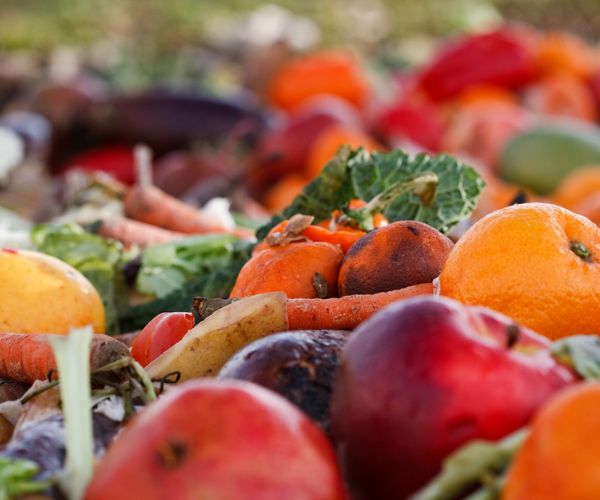Customer testimonials
R&D support and cookie making process: Maison Le Goff testifies
21
May

Published on : 21/05/2021
The Le Goff house was created by Roger and Yvette Le Goff in March 1950. Roger Le Goff, from a family of bakers, had his bakery in the city center, and it was Yvette, a dynamic and visionary woman, who developed the family business. The company became one of the first cookie factories to produce for private labels and to make Breton cookies known to the greatest number of people.
In May 2019, at the age of 90, Yvette handed over the reins of her company to Marie-Laure Jarry, who, full of ambition, has set a new course for the company: innovation! However, the general manager was determined to keep the values passed down since 1950:
- Great pastry know-how
- Sourcing in France
- Limitation of product transformations (no emulsifiers, no glucose syrup, no preservatives).
In what context did you call upon the CTCPA? What was your need(s)? What were your objectives?
When I took over Maison Le Goff in May 2019, I wanted to launch an innovation approach. An R&D department was therefore created. To support us in this new approach, we needed a unique partner able to help us with the R&D part but also with the production process. I found all the skills and expertise I needed with the CTCPA!
The CTCPA intervened for the first time with a factory audit. Since 2020, we are accompanied by Marie-Luce LE BRIQUER and Florence PARRAT (CTCPA cereal products team) throughout the year on various topics: quality, R&D, process, metrology...
The CTCPA answers our technical questions remotely, intervenes on our site when we have specific problems and trains us on new aspects.
The CTCPA will soon intervene for an audit of the oven in order to improve our quality and meet more IFS criteria.
What do you think of the CTCPA's support?
I am delighted. Thanks to the CTCPA, we have succeeded in moving into an era of innovation and high reactivity. Alongside the CTCPA teams, my employees are gaining in skills! I think that this is really the strong point of the CTCPA's support: not only are we helped with problems but we are also able to correct them ourselves after having learned from their know-how.
Moreover, Marie-Luce LE BRIQUER and Florence PARRAT have been able to adapt to our industrial constraints and help us continuously to meet our development objectives. I appreciate the adaptability of the CTCPA.
CTCPA's perspective:
The transmission of our knowledge on the production of cookies (formulation, manufacturing technologies, conservation) is the daily motivation of the project manager and takes all its meaning in this collaboration with Maison Le Goff.
This support is done in a climate of mutual trust and allows us to offer all types of solutions: quality audit, implementation of test plans, remote training, on line support for formulation or process calibration tests, oven mapping, etc., while respecting the company's values.
Each employee of the company must find answers to their questions in this partnership.
The CTCPA is delighted to be part of the Maison Le Goff adventure!
Can you tell us about your products?
Our complete range is composed of :
- Breton cakes
- Breton palets
- Breton cakes
- Cookies
- Quarter Pound
Our cookie factory is moreover certified organic since December 2019. We produced our first organic recipes in 2020 for the Maison Le Goff organic galettes and palets or for the organic cookies of our client Marlette.
We have also chosen to integrate a new Breton chain: Thank you algae! This network allows us to buy flour produced in Brittany with wheat fed with a natural solution of seaweed: thanks to this solution, the wheat is raised without insecticide or fungicide. This solution also allows Maison Le Goff to buy eggs from hens raised in the open air and fed without antibiotics.
How does a committed and responsible cookie factory translate?
We have at heart to manufacture with French products, local in the respect of the pastry know-how with the least possible transformation.
This also includes production for brands that are anti-waste, such as In Extremis ! Or Us anti-gaspi !
The cookies are made from unsold bread and residues from the production of wheat flour.
What are your next areas of development?
We are launching the "Maison Le Goff" brand in local supermarkets on our historical range (galettes and palets). We have created several gourmet recipes: raspberry, chocolate, caramel.... We will have our own boxes and cardboard cases.
And as we like to innovate, in September our new line of cookies will be released!
We also plan to produce salted cookies for the end of the year. We are currently working to develop cookies with Breton seaweed.
In parallel, we maintain production for private labels and other brands.
Contacts :
- Maison Le Goff: Marie-Laure JARRY, General Manager - 06 74 18 91 78 - marie-laure.jarry@maison-le-goff.fr
- CTCPA : Marie-Luce LE BRIQUER - Grain Products Technology Project Manager - mlebriquer@ctcpa.org / Florence PARRAT - Grain Products Technology Project Manager - fparrat@ctcpa.org
Website of the Maison Le Goff, a committed and responsible cookie factory.
LinkedIn: Le Goff House






